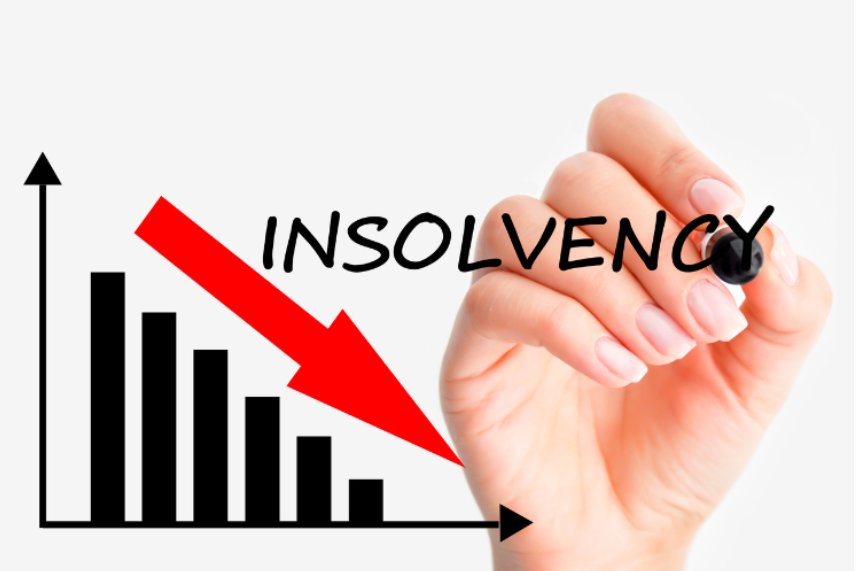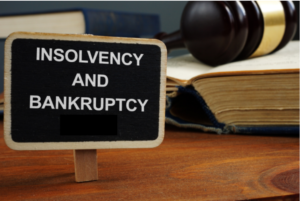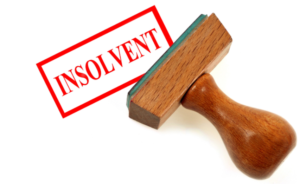
What’s the Meaning of Insolvency and Being Insolvent?
You’re insolvent if you can’t pay your loans on time or if your debts exceed your assets.
Although the terms are sometimes used interchangeably, it’s crucial to remember that to be bankrupt and to be insolvent have different meanings. Insolvency is frequently a precursor to bankruptcy. If you find yourself unable to pay your debts, you may want to consider filing for bankruptcy.
An insolvent person owes more than $1,000 and is “unable to meet his debts as they typically become due,” according to the Bankruptcy & Insolvency Act.
What’s the Difference Between Bankruptcy and Insolvency?

Insolvency is a financial situation in which an individual or a company is unable to pay debts to creditors when they are due. Bankruptcy, on the other hand, is a legal method of debt relief. It gives debtors a new financial start while also protecting them from creditors.
How Can I Tell If I’m Insolvent?
You may be asking if you are insolvent now that you understand the definition of insolvency. There are some basic tests you can use to see if you’re insolvent or not. Take a look at how you stack up against the following criteria:
1. an you make a minimum payment on your debt if your payments are due on the first day of the month? If not, you are most likely unable to fulfill your financial responsibilities. You could tell if you’re insolvent by looking at your cash flow in the following ways:
- Your debt grows every month, especially if you rely on credit for day-to-day expenses.
- You’re paying down credit card debt with cash advances.
- You’re only paying the bare minimum on your loans, which has a minimal effect on lowering your debt balance.
- You’ve maxed out your credit cards.
- You’re thinking about getting a payday loan just to hold your finances afloat.
- After all expenses, your after-tax income is less than the combined value of your loans.
2. Do you own any assets? Does the value of these assets, if liquidated or sold, cover your debt? If this is the case, you are not insolvent, since you can sell your assets to pay off your debt.
What You Should Do if You Become Insolvent

If you become insolvent, you have options. First and foremost, do not panic. Obtaining debt relief will allow you to start a new financial future. With the advice of a debt expert, you could determine whether you are insolvent or not. They’ll try to figure out whether you’ll be capable of paying your loan on time, and if your debts are more than the value of your assets. If you are insolvent, they can suggest the best debt relief option for you. Bankruptcy and consumer proposals are the two most popular kinds of debt relief for insolvency. You must be bankrupt to file one of these types of debt relief.
Consumer Proposal
A consumer proposal is a good choice for you if you have income, but are having a hard time paying your debt month to month. A consumer proposal is a legal method of debt settlement that is supported by the Bankruptcy and Insolvency Act of Canada. The proposal allows you to lower your unsecured debt by up to 80%, which makes it a good choice if you are insolvent. Any outstanding debt will be cancelled after the agreed-upon repayment time. It gives you the chance to maintain your assets and a shield from creditors through a stay of proceedings.
Bankruptcy
If you’re insolvent and owe a lot of money, especially at a high-interest rate, bankruptcy is a great way to get out of debt. Bankruptcy is the procedure of handing over any non-exempt assets to a Trustee in return for your debts being discharged, and it is a legal procedure. When you file for bankruptcy, a stay of proceedings is ordered to protect you from your creditors. Bankruptcy provides Canadians with a fresh start, allowing them to restore their lives. If you depend on credit for everyday necessities, are paying off one credit card with the other, are thinking of taking out a payday loan, or are well behind on payments, you may want to consider filing bankruptcy.
Final Thoughts
Being insolvent is not the end of the world. A lot of people have had far more financial problems, but they bounced back and regained their financial freedom, so don’t be afraid.
If you’re not sure if you’re insolvent, schedule a free consultation with us at EmpireOne. It’s the first step toward getting out of debt. The majority of people need not file for bankruptcy. Our credit experts will assist you in exploring all of your debt relief possibilities and recommend the best one for you. We are committed to walking you through this journey.





